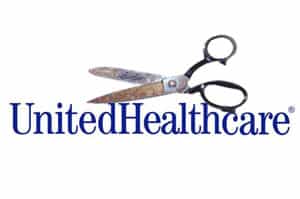 Sometimes we hate it when we’re right. Earlier this month we reported on the Obama administration’s policy reversal which not only blocked proposed cuts to massive private insurers in Medicare but actually give them a rate increase. As predicted, as soon as Washington gave the nation’s highly profitable private insurance industry their cookie –they asked for the milk.
Sometimes we hate it when we’re right. Earlier this month we reported on the Obama administration’s policy reversal which not only blocked proposed cuts to massive private insurers in Medicare but actually give them a rate increase. As predicted, as soon as Washington gave the nation’s highly profitable private insurance industry their cookie –they asked for the milk.
Kaiser Health News explains how United Health’s CEO claims the company’s $2.1 billion profits last quarter just aren’t enough. They want taxpayers to pony up even more to subsidize their participation in Medicare.
KAISER HEALTH NEWS
Despite Win, UnitedHealth Criticizes Medicare Rates, Eyes Pruning Business
If the Obama administration expected the biggest health insurance company to give thanks for this month’s decision to reverse cuts to private Medicare plans, it was wrong. UnitedHealth Group CEO Stephen Hemsley said Thursday that Medicare Advantage rates are still far too low and that the company may shrink its business of managing care for seniors.
“We did not expect the fastest growing, most popular and most effective Medicare benefit option serving America’s seniors to be underfunded to this extent in 2014,” Hemsley said on a conference call with investment analysts. UnitedHealth’s Medicare Advantage business, he added, “will likely experience market exits as well as in market membership contraction as we reshape Medicare networks and benefits to respond to the continuing underfunding of this program.”
The administration’s decision to reverse cuts for Medicare Advantage, in which private insurers operate managed care networks for seniors, was seen as a significant industry victory. As the biggest seller of Medicare Advantage plans, UnitedHealth was deemed a primary beneficiary. More than one Medicare member in four is in a Medicare Advantage plan.
In February the Department of Health and Human Services surprised insurers by announcing a cut of more than 2 percent per Medicare member for 2014. The industry launched a lobbying and advertising campaign in protest. On April 1, the administration pulled back, announcing that instead of reducing payments it would raise them by 3.3 percent. UnitedHealth’s stock stock rose 8 percent that day and the next.
But in Thursday’s call to discuss the company’s quarterly profits of $2.1 billion on revenue of $30.3 billion, Hemsley said other changes — including the Affordable Care Act’s long-term reduction in Medicare Advantage payments – would still lead to a net reduction next year of more than 4 percent. That’s inadequate when medical costs are rising in the 3 percent neighborhood, he said.


